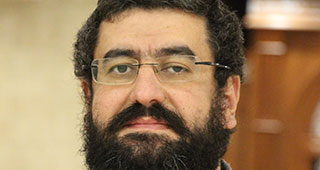- Jewish Laws and Thoughts
- Humility, Holiness and Fearing Hashem
The Torah study is dedicatedin the memory of
Gila Bat Rachel
4324
A humble person detests authority, detests having control over other people, as the sages say: "Love labor and detest authority." They also say, "Never run after authority." We should not however, understand this to mean that a person should refuse to accept positions that involve responsibility for public welfare. The sages do not mean that a person should refuse to become a rabbi or leader. Rather, what they mean is that a person should detest authority, the desire to rule over others.
A person should flee from such a desire, to detest such a desire. A person should hate possessing authority but not avoid positions of authority. One should accept such positions with a desire to serve the public, not to control the public. Therefore, a person should not run after positions of public authority.
Moses exemplified this trait when he initially turned down the position of leading the Jewish people, and he only agreed because he had no choice. Hence, the addict, "Love labor and hate authority" is to be interpreted as meaning: Love the labor of serving the public but hate the authority and rule involved.
And this is what Rabban Gamliel had to say about those who refused positions of leadership: "‘Do you imagine that I offer you rulership? It is servitude that I offer you" (Horayot 10a). A humble person flees honor. He realizes that it is one of the vanities of the world, a mere allusion. Not only does it bring no benefit, it brings danger. It causes a person to go against what he knows to be right, and to go against his Creator.
Therefore, a humble person flees honor, hates honor, and is disgusted by it. The praises he receives only trouble him. What’s more, they cause him discomfort because he considers them untrue, and this embarrasses him.
The fourth ingredient of humility is to respect every person. "Who is respectable? One who respects others" (Avot 4:1), "Be first in [inquiring after] the peace of all people" (ibid. 4:15), "They said of Rabban Yochanan ben Zakkai that no man ever gave him greeting first" (Berakhot 17a); he was always first to greet others, even non-Jews in the street. When a person shows respect for others we can see that he is in no need of such respect himself. To the contrary, he enjoys bestowing honor upon others, he possesses no feelings of competition for honor, for honor means nothing to him.
These, then, are the components of humility. We have noted that humility is both objectively correct and worthwhile. Not only does it save a person from transgressions and violations, it also brings him much good. He lives a life of comfort. He neither becomes angered nor does he quarrel with others, and people find him pleasing.
------
Translated biblical verses and/or Talmudic sources in the above article may have been taken from, or based upon, Davka's Soncino Judaic Classics Library (CD-Rom).
47. The Distinction of Humility
Rabbi Zalman Baruch Melamed
51. Sanctity
Rabbi Zalman Baruch Melamed | Monday, 8 Menachem Av 5767
Fear of Sin - Punishment and Loftiness
Rabbi Zalman Baruch Melamed | Tuesday, 14 Elul 5767
Fear of Sin - Punishment and Loftiness
Rabbi Zalman Baruch Melamed | 5762

seudat hodaya
Rabbi Daniel Mann | 5772

Automatic Payment on Shabbat or Yom Tov
Rabbi Daniel Mann | Tishrei 29 5776
7. Shaving
Chapter 3: Customs of Mourning during the Omer Period
Rabbi Eliezer Melamed | Tishrei 30 5782
7. Shaving
Chapter 3: Customs of Mourning during the Omer Period
Rabbi Eliezer Melamed | Tishrei 30 5782
Daf Yomi Makkot Daf 18
R' Eli Stefansky | 28 Nisan 5785

The Yom HaZIKARON SIREN- EVERY ARROW NEEDS A HEAD!
Rabbi Ari Shvat | Iyar 5785






